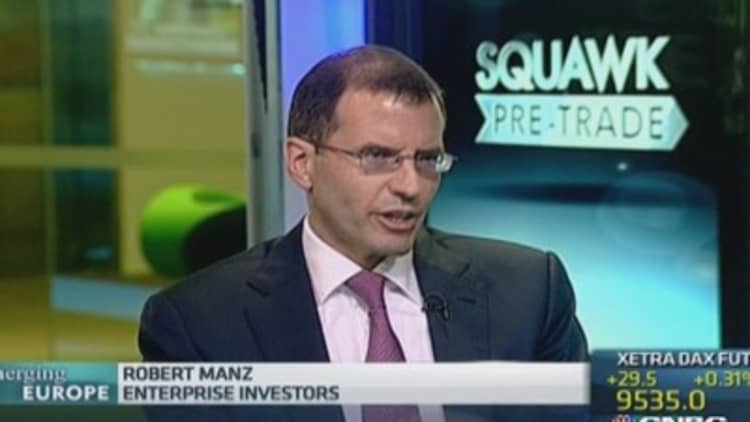Having just returned from a week on the road in central and eastern Europe, I thought I would share a few thoughts about one of the countries I visited, namely Poland.
As Europe's sixth largest economy, it is the only European Union country to border both Russia and Ukraine. Yet, despite the current climate of geopolitical tensions in that region -- and despite a slow-to-no growth Europe -- the Polish economic outlook is looking pretty good.
Before the recession, Poland's gross domestic product was around 6 percent. In 2009, at the height of the market malaise, while EU GDP contracted by 4.9 percent, Poland was the only country in Europe to see a GDP increase of 1.6 percent. Current expectations are for growth of up to 3.5 percent this year and next.
Surely growth like this should be reflected in stocks then, right? Well, it kind of isn't. At least not yet. First, one third of stocks on Poland's main WIG20 index are commodity-based, and sensitive to recent fluctuations in oil and basic resources.
Second, financials PKO Bank, Pekao, and PZU make up 40 percent of the index, and last, but perhaps most important at the moment, a recent big overhaul of the Polish pension system allowed the state to legally take over 51.5 percent of assets, and led to fears that the money pension funds traditionally invested in domestic equities would be scaled back drastically.
Read MoreExtraordinary exports from eastern Europe
According to Grzegorz Zawada, the Deputy chief executive of the Warsaw Stock Exchange, this hasn't happened. Among other things, he says, because the dividend play still is very strong at 4 percent compared to elsewhere.
Krzysztof Rybinski, the former deputy governor of the Polish Central Bank told me: "Poland is a real puzzle in many ways. With inflation at just 0.5 percent , you would expect to see recession and stagnation. That is not the case here."
Also, for the time being, it is "good deflation" in that it is being driven by oil and food prices.

What makes Poland stand out?
What makes Poland different? In contrast to many other countries in Europe, the Polish government didn't push through harsh austerity measures during the financial crisis. Instead, they cut taxes and funded public spending through foreign assistance.
It also helped that a lot of economic reforms already had been pushed through after the fall of communism in the 1990s. At around half of its GDP, the country still has a low level of public debt compared to the EU average of around 90 percent.
Finally, Poland remains outside the euro zone. So along with a depreciation of the zloty came a boost in export value and heightened competitiveness.
Read MorePoland: A tough sell for investors?
On the downside, at north of 11 percent, Poland has one of the highest levels of unemployment in the EU, with 46 percent of unemployed Poles being long-term unemployed.
To take full advantage of the Polish economic potentials, this remains the pressing issue which needs to be dealt with to unlock Poland's full potential.




